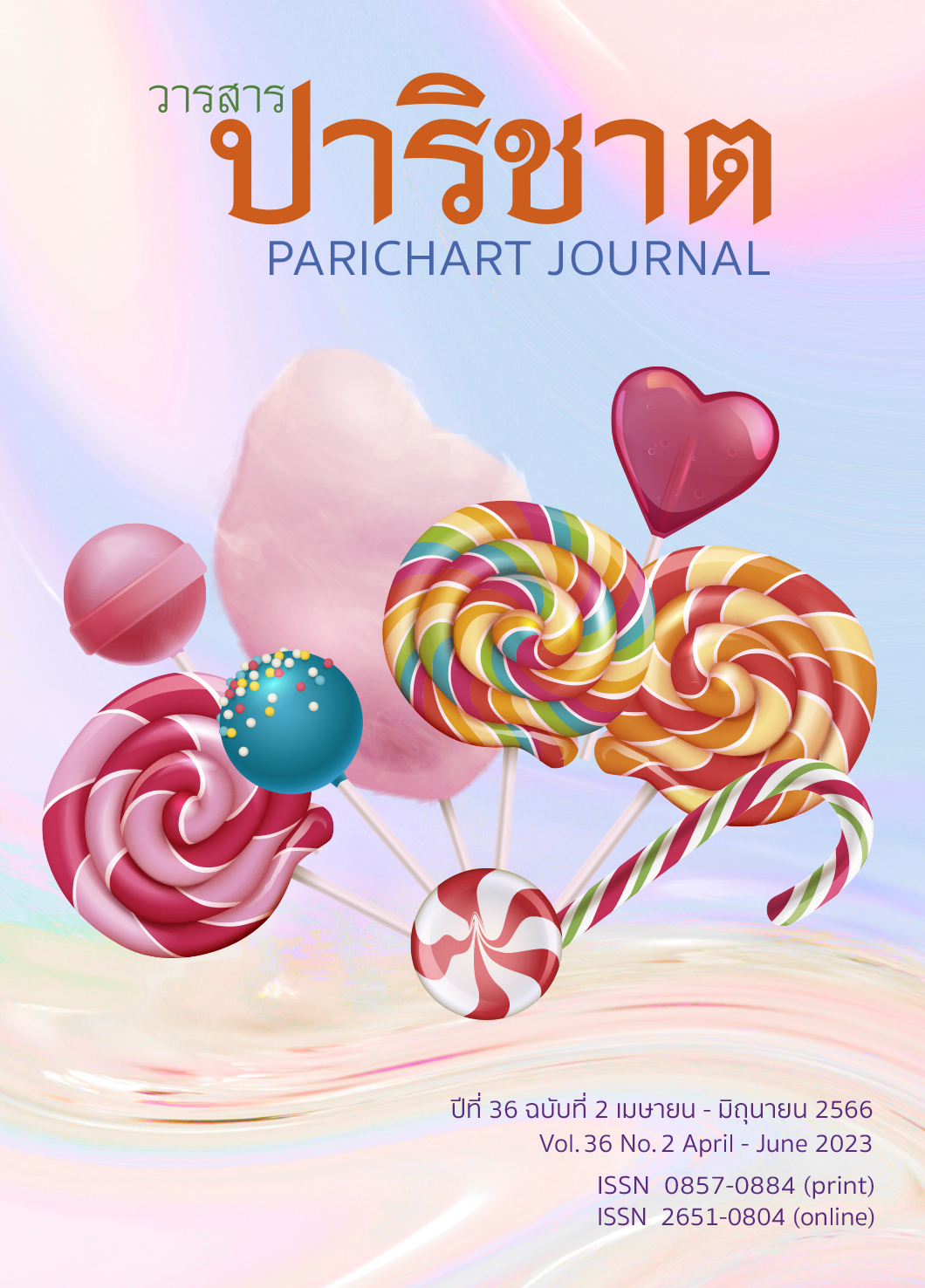An Investigation of Self-Mention and Identity Construction in Chart Korbjiti’s “The Judgment” of Thai Written Novel
Main Article Content
บทคัดย่อ
This research article aims to explore the use of self-mentions “I” expressed by the characters in the novel “the Judgment”, the famous novel in Thailand. The results revealed that the facets of critical discourse and context interpretation cannot be separated. That is, discourse also plays a vital role in projecting an individual‘s subjectivity through the use of language, non-verbal interaction and expression. Fak, the main protagonist and the villagers are the key parts of societal discourse, with the former as a victim of the villagers’ discourse and the latter as victims of their own. The use of self-mentions “I” and identity construction could manifest the intended meaning that each character conveys. The analysis underlines the concept sociolinguistics and discourse should be considered as an interesting medium in Thai thought domination found in the novel. Moreover, instructors of the English language can apply the results of this study as a guideline for raise students’ awareness of competent novel writers with the sociolinguistic and critical discourse interpretation, along with the necessity to understand the underline meaning of Thai cultures while creating novel.
Article Details

อนุญาตภายใต้เงื่อนไข Creative Commons Attribution-NonCommercial-NoDerivatives 4.0 International License.
เอกสารอ้างอิง
Ingarden, R. (1974). The literary work of art: An investigation on the borderlines of ontology, logic, and theory of literature. Northwestern University Press.
Casanave, C. P. (2003). Looking ahead to more socio-politically-oriented case study research in L2 Writing scholarship. Journal of Second Language Writing, 12(1), 85-102.
Schwartz, S. J. (2005). A new identity for identity research: Recommendations for expanding and refocusing the identity literature. Journal of Adolescent Research, 20(3), 293-308.
Ivanič, R. (1998). Writing and identity: The discoursal construction of identity in academic writing. John Benjamins.
Martínez, I. A. (2005). Native and non-native writers’ use of first-person pronouns in the different sections of biology research articles in English. Journal of Second Language Writing, 14(3), 174-190.
Hyland, K. (2005). Stance and Engagement: A Model of Interaction in Academic Discourse. Discourse Studies, 7, 173-192.
Matsuda, P. (2015). Identity in written discourse. Annual Review of Applied Linguistics, 35, 140-159.
Hyland, K. (1998). Hedging in Scientific Research Articles. John Benjamins.
Hyland, K. 2009. Academic Discourse: English in a Global Context. Continuum.
Matsuda, P. K., & Tardy, C.M. (2007). Voice in academic writing: The rhetorical construction of author identity in blind manuscript review. English for Specific Purposes, 26, 235-249.
Spivey, N. N. (1997). The Constructivist Metaphor: Reading, Writing and the Making of Meaning. Academic Press.
Tang, R.ม & John, S. (1999). The ‘I’ in identity: Exploring writer identity in student academic writing through first person pronoun. English for Specific Purposes, 18(S1), 23-39.
Brown, P., & Levinson, S. (1978). Universals in Language Usage: Politeness Phenomena. In E. Goody (Ed.). Questions and Politeness: Strategies in Social Interaction (pp. 56-310). Cambridge University Press.
Fairclough, N., & Wodak, R. (1997). Critical Discourse Analysis. In T. van Dijk (Ed.). Discourse Studies: A Multidisciplinary Introduction (Vol. 2, pp. 258-284). Sage.
Anthony, L. (2014). AntConc (Version 3.4.4). http://www.laurenceanthony.net/.
Ivanic, R. (1998). Writing and identity: The discoursal construction of identity in academic writing. John Benjamins


